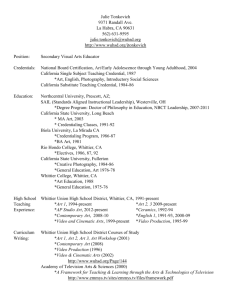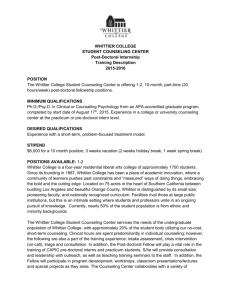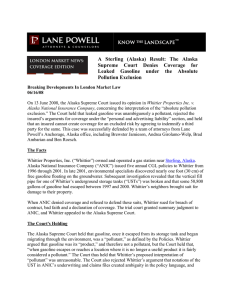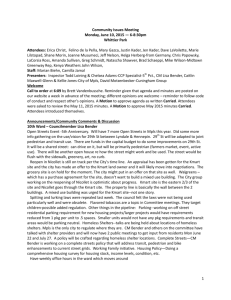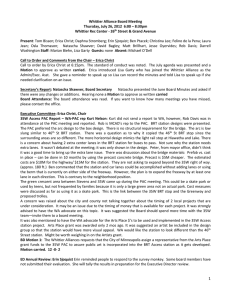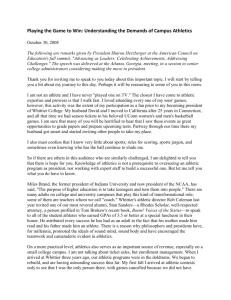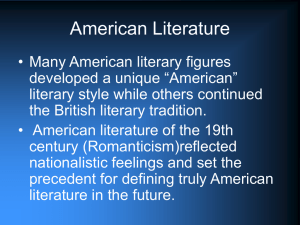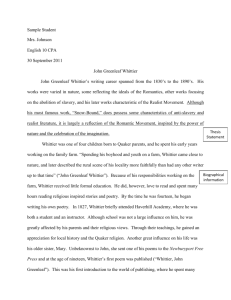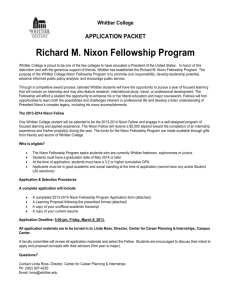On Spirituality at Whittier College
advertisement
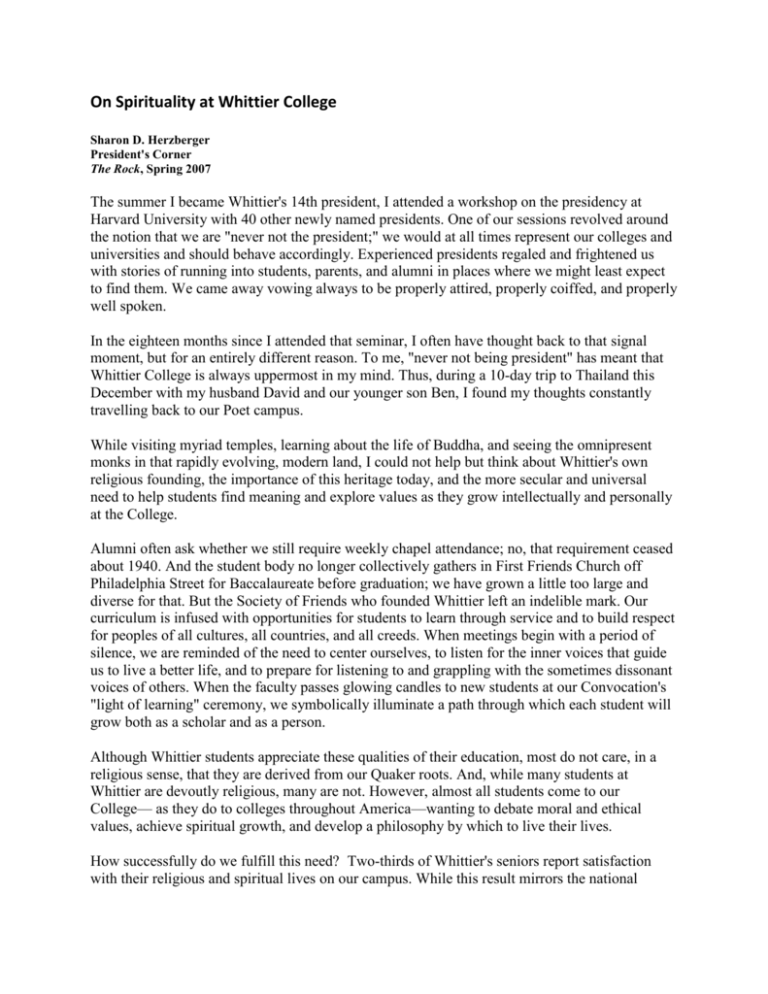
On Spirituality at Whittier College Sharon D. Herzberger President's Corner The Rock, Spring 2007 The summer I became Whittier's 14th president, I attended a workshop on the presidency at Harvard University with 40 other newly named presidents. One of our sessions revolved around the notion that we are "never not the president;" we would at all times represent our colleges and universities and should behave accordingly. Experienced presidents regaled and frightened us with stories of running into students, parents, and alumni in places where we might least expect to find them. We came away vowing always to be properly attired, properly coiffed, and properly well spoken. In the eighteen months since I attended that seminar, I often have thought back to that signal moment, but for an entirely different reason. To me, "never not being president" has meant that Whittier College is always uppermost in my mind. Thus, during a 10-day trip to Thailand this December with my husband David and our younger son Ben, I found my thoughts constantly travelling back to our Poet campus. While visiting myriad temples, learning about the life of Buddha, and seeing the omnipresent monks in that rapidly evolving, modern land, I could not help but think about Whittier's own religious founding, the importance of this heritage today, and the more secular and universal need to help students find meaning and explore values as they grow intellectually and personally at the College. Alumni often ask whether we still require weekly chapel attendance; no, that requirement ceased about 1940. And the student body no longer collectively gathers in First Friends Church off Philadelphia Street for Baccalaureate before graduation; we have grown a little too large and diverse for that. But the Society of Friends who founded Whittier left an indelible mark. Our curriculum is infused with opportunities for students to learn through service and to build respect for peoples of all cultures, all countries, and all creeds. When meetings begin with a period of silence, we are reminded of the need to center ourselves, to listen for the inner voices that guide us to live a better life, and to prepare for listening to and grappling with the sometimes dissonant voices of others. When the faculty passes glowing candles to new students at our Convocation's "light of learning" ceremony, we symbolically illuminate a path through which each student will grow both as a scholar and as a person. Although Whittier students appreciate these qualities of their education, most do not care, in a religious sense, that they are derived from our Quaker roots. And, while many students at Whittier are devoutly religious, many are not. However, almost all students come to our College— as they do to colleges throughout America—wanting to debate moral and ethical values, achieve spiritual growth, and develop a philosophy by which to live their lives. How successfully do we fulfill this need? Two-thirds of Whittier's seniors report satisfaction with their religious and spiritual lives on our campus. While this result mirrors the national average of private schools and exceeds by far the average at public colleges and universities, I cannot help but focus on the one-third of our seniors who leave unsatisfied. I am mindful of national surveys showing that students want more leadership from faculty on spiritual and religious issues. Some professors shy away from discussions of faith, values, and ethics, deliberately steering instead to what they may consider provable, verifiable knowledge. Others feel that they lack the expertise to handle difficult, emotional conversations that might arise. Whatever their motivation, these faculty lose opportunities to satisfy students' yearning for such discussions and to broaden students' understanding in the context of an academic discipline. In the meantime, students use their own initiative to create opportunities for spiritual, ethical, and religious exploration. On our own campus, they establish relevant student clubs, organize prayer meetings, sponsor community service workshops, host interfaith dinners, and engage in endless conversations in the residence halls. When Dean of Students Jeanne Ortiz announced a time for the Chapel to open solely for quiet reflection, there was an outpouring of interest from students eager to use that space for spiritual journeys. Students at Whittier will find the way, but I still wonder how we—as educators—can be better helpmates. These were among my thoughts as I traveled through a country so manifestly spiritual. Our own students' quest may be less outwardly visible, but nonetheless it is strong. And the College must respond.

